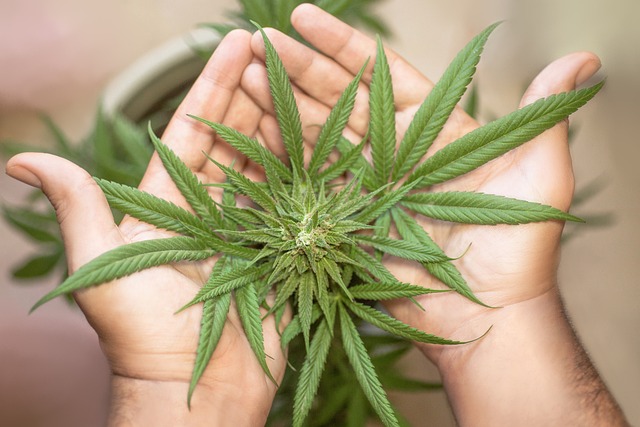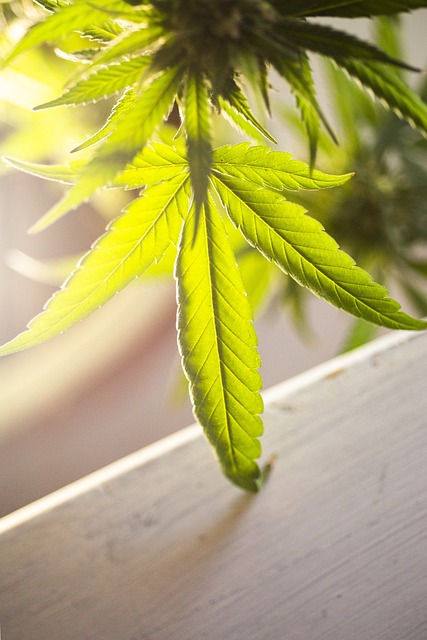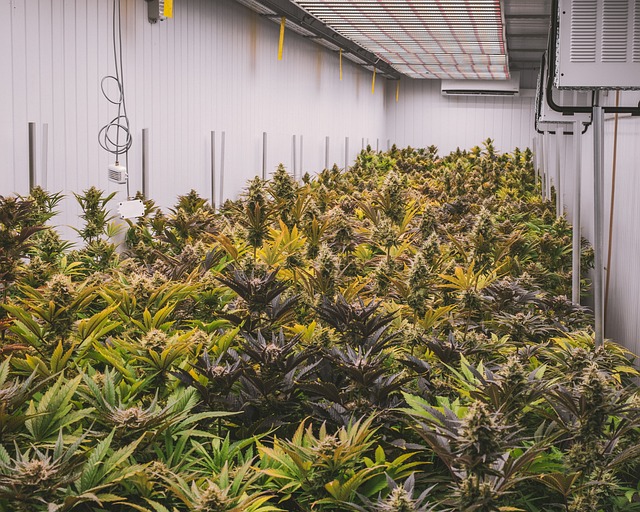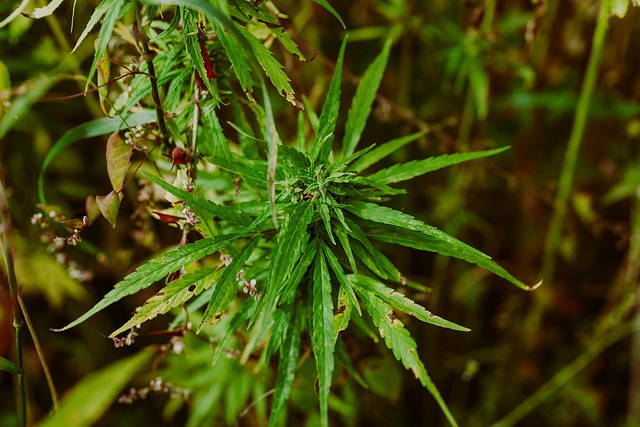As of now, THCA (Tetrahydrocannabinolic Acid) legality in South Carolina is complex and subject to ongoing legislative discussions. While the state's Compassionate Care Act allows for CBD oils with minimal THC for medical use, THCA's legal status outside this program remains uncertain. The 2018 Farm Bill decriminalized hemp and its derivatives like THCA at the federal level, but this has not clarified its status in South Carolina, where possession or sale of THCA flower for anything other than medical purposes is illegal. However, there is a push for legislative clarity to legalize THCA flower, which could open up new avenues for research into its health benefits and potentially expand the state's economy and cannabis market. THCA, known for its potential therapeutic properties without psychoactive effects, is gaining attention in South Carolina as a safe and non-psychoactive alternative to traditional cannabis products. Consumers interested in exploring THCA should monitor legislative developments, understand proper dosage, and adhere to state regulations for safe and legal consumption.
Exploring the emergence of THCA flower within the regulated framework of South Carolina, this comprehensive article delves into the nuances and potential of this non-psychoactive cannabinoid. From understanding its scientific foundations to navigating legal boundaries, we dissect the landscape that governs THCA flower legality in the state. We also scrutinize the quality and sourcing aspects crucial for safe consumption, elucidate various methods for experiencing its benefits, and project its future within South Carolina’s burgeoning cannabis industry. Join us as we uncover the intricacies of THCA flower, a natural compound with promising therapeutic attributes.
- Exploring the Legal Landscape of THCA Flower in South Carolina: An Overview
- The Science Behind THCA Flower: Potential Benefits and Therapeutic Uses
- Sourcing and Quality Considerations for THCA Flower in South Carolina
- Consumption Methods and Dosage: Safely Enjoying THCA Flower
- Future Prospects: The Role of THCA Flower Legislation and Research in South Carolina's Evolving Cannabis Market
Exploring the Legal Landscape of THCA Flower in South Carolina: An Overview

In recent times, the conversation surrounding cannabis derivatives has become increasingly nuanced, with particular attention given to THCA or Tetrahydrocannabinolic Acid, a non-psychoactive precursor to THC found in the cannabis plant. As of the knowledge cutoff date, South Carolina’s legal landscape for THCA flower is characterized by a blend of restrictive policies and emerging opportunities. The state’s legislation has historically been conservative regarding cannabis and its derivatives, with THCA being no exception. However, with the passage of the South Carolina Compassionate Care Act in 2014, the state made provisions for the use of medical marijuana under a tightly regulated program, primarily focusing on CBD oils containing less than 0.9% THC. This act paved the way for discussions around expanding the legal scope to include THCA and other cannabinoids, yet practical implementation has been slow, with THCA remaining in a legal gray area outside of the specific medical cannabis program.
As of now, possessing or selling THCA flower for recreational use in South Carolina is illegal under federal law and state statutes. The Farm Bill of 2018 legalized hemp and its derivatives, which include THCA, provided they contain less than 0.3% THC on a dry weight basis. This has led to some confusion regarding the legality of THCA flower, as it is often derived from hemp and contains traces of THC. Navigating the legalities requires a clear understanding of both state and federal regulations, which can be complex and subject to change. It is crucial for anyone interested in or involved with THCA products to stay informed on the evolving laws and regulations governing cannabis-related substances in South Carolina.
The Science Behind THCA Flower: Potential Benefits and Therapeutic Uses

Delta-9-tetrahydrocannabinolic acid (THCA) is the non-psychoactive precursor to the well-known psychoactive cannabinoid THC. Found abundantly in raw or uncured cannabis flowers, THCA has garnered attention for its potential health benefits and therapeutic uses. Scientific research indicates that THCA may possess anti-inflammatory, antioxidant, and neuroprotective properties. Preclinical studies suggest that it could be beneficial in managing pain and inflammation, as well as supporting the immune system’s function. In South Carolina, where the legal landscape is evolving, THCA flower has become a subject of interest among researchers and consumers alike, with its potential uses in various therapeutic contexts being explored. The state’s legislation permits the use of medical cannabis under certain conditions, including for conditions like epilepsy, PTSD, and chronic pain, which may open doors for THCA flower to be utilized within this framework. As such, the scientific community is keen on understanding how THCA can contribute to the therapeutic arsenal for those with qualifying conditions in South Carolina.
Sourcing and Quality Considerations for THCA Flower in South Carolina

In South Carolina, where THCA-rich hemp flower has been legally cultivated and sold since the passage of the 2018 Farm Bill, consumers have a unique opportunity to experience the potential benefits of this non-intoxicating cannabinoid. Sourcing high-quality THCA flower begins with understanding the legal landscape in which it operates. The South Carolina Department of Agriculture regulates hemp cultivation within the state, ensuring that all legally sold THCA flower adheres to strict guidelines for both cultivation and distribution. When sourcing THCA flower in South Carolina, it’s crucial to look for products from reputable growers who utilize clean, sustainable growing practices and maintain transparency throughout their processes. These growers often provide detailed information about their strains, terpene profiles, and lab results, which is essential for consumers seeking a high-quality, safe product. Additionally, customers should consider the extraction and preservation methods used to maintain THCA’s natural state, as improper handling can lead to degradation into other cannabinoids like THC, which may have different legal statuses and effects. By prioritizing sourcing from licensed and certified producers with a commitment to quality, users in South Carolina can confidently enjoy THCA flower’s potential wellness benefits, knowing that their choice is both legally compliant and of the highest standard.
Consumption Methods and Dosage: Safely Enjoying THCA Flower

THCA, or Tetrahydrocannabinolic Acid, is a naturally occurring compound found in cannabis and hemp plants that has garnered attention for its potential wellness benefits. As THCA remains non-psychoactive, it’s a popular choice among consumers seeking the therapeutic effects associated with cannabis without the intoxicating high that comes from its decarboxylated form, THC. In South Carolina, where the legal landscape around cannabis products is evolving, THCA flower has emerged as a safe and accessible consumption method for individuals looking to explore its benefits legally.
To safely enjoy THCA flower, it’s important to understand the correct dosage and consumption methods. One of the most common ways to consume THCA flower is through smokable products, which can be vaporized or smoked. Vaporizing offers a temperature-controlled method that releases cannabinoids without combustion, minimizing harmful byproducts and allowing for precise dosing. Consumers should start with a low dose to gauge effects, as individual sensitivities to THCA can vary greatly. Additionally, edibles crafted from THCA-rich concentrates are another consumption method that provides long-lasting effects. Decarboxylation is necessary to convert THCA into THC if one desires the psychoactive effects; otherwise, consumers in South Carolina can legally enjoy THCA’s potential benefits as a non-psychoactive substance. Regardless of the method chosen, it’s crucial to adhere to local regulations and always prioritize personal health and safety by using products responsibly and in accordance with state laws.
Future Prospects: The Role of THCA Flower Legislation and Research in South Carolina's Evolving Cannabis Market

As South Carolina’s cannabis landscape continues to evolve, the role of THCA (Tetrahydrocannabinolic Acid) flower is becoming increasingly significant. Currently, under state law, the possession and sale of CBD products containing less than 0.3% THC are permissible. However, the legal status of THCA flower, which contains THC in its raw form and has not yet been decarboxylated to produce psychoactive effects, remains a gray area. Advocacy efforts and ongoing legislative discussions aim to clarify this distinction and regulate the use of THCA flower accordingly. The potential passage of legislation that explicitly legalizes THCA flower would not only clarify its status but also open up new avenues for research into its medicinal properties.
Researchers in South Carolina are keenly interested in exploring the therapeutic benefits of THCA, which some studies suggest may offer relief from a variety of conditions without the psychoactive effects associated with its decarboxylated form, THC. As scientific understanding of THCA’s potential grows, it is anticipated that this will inform policy decisions and influence the broader market for cannabis products. The convergence of legislative action and empirical research stands to shape South Carolina’s evolving cannabis market, potentially positioning the state as a leader in the safe and regulated production and distribution of THCA flower and related products. This confluence of legal and scientific developments is poised to drive innovation and economic opportunities within the industry, reflecting the dynamic nature of South Carolina’s approach to cannabis policy.
South Carolina’s evolving stance on cannabis, particularly THCA flower, marks a significant step forward in the state’s approach to alternative wellness solutions. The scientific community has shed light on the potential benefits and therapeutic uses of THCA, offering new avenues for health and well-being. As consumers become more informed about sourcing and quality considerations, it becomes increasingly clear that understanding THCA legality in South Carolina is crucial for safe and responsible enjoyment. Looking ahead, the future prospects for THCA flower are promising, with ongoing legislative efforts and research poised to shape the industry’s trajectory. It’s an exciting time for those interested in the potential of THCA flower within the legal framework established by the state.
